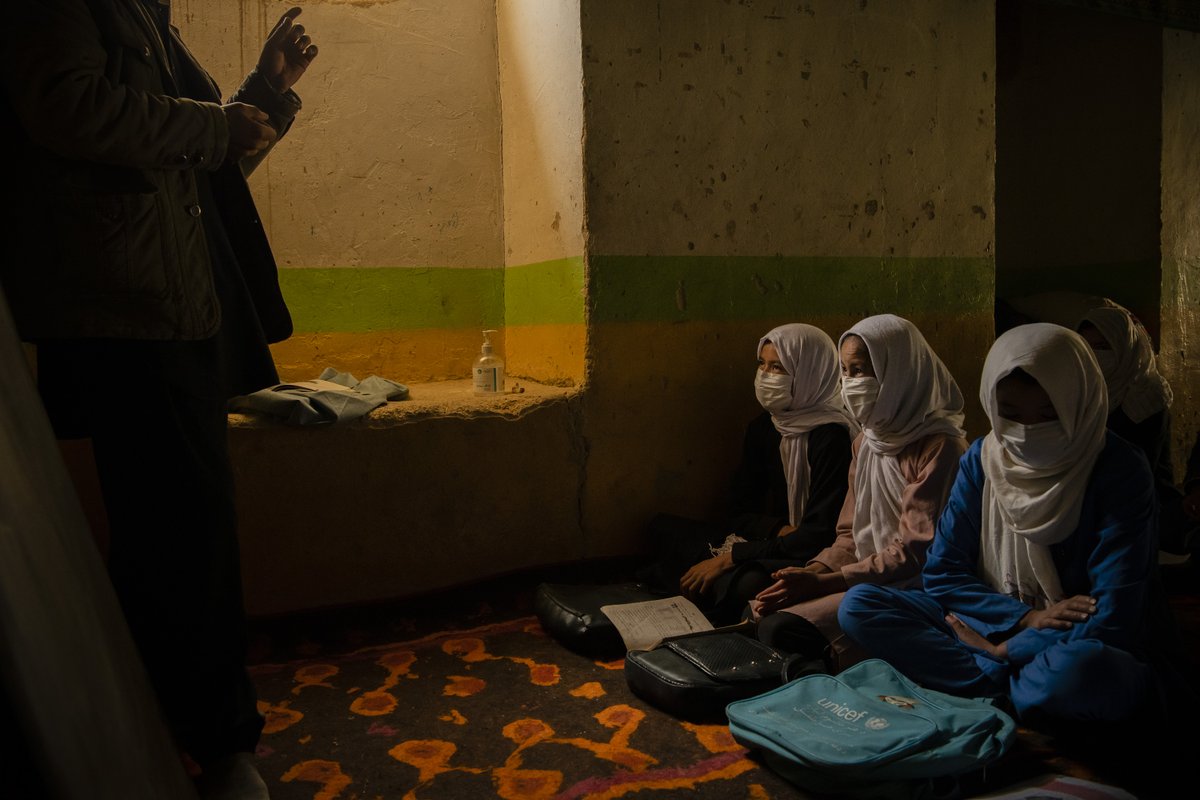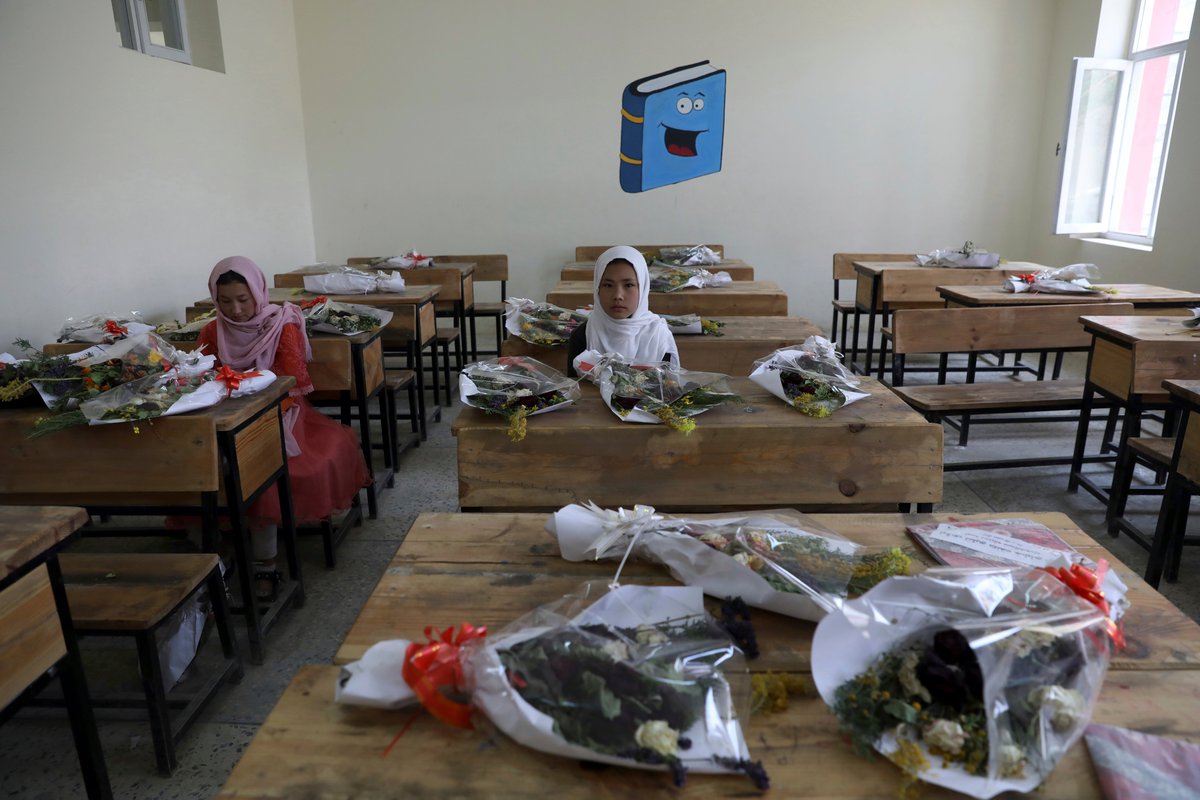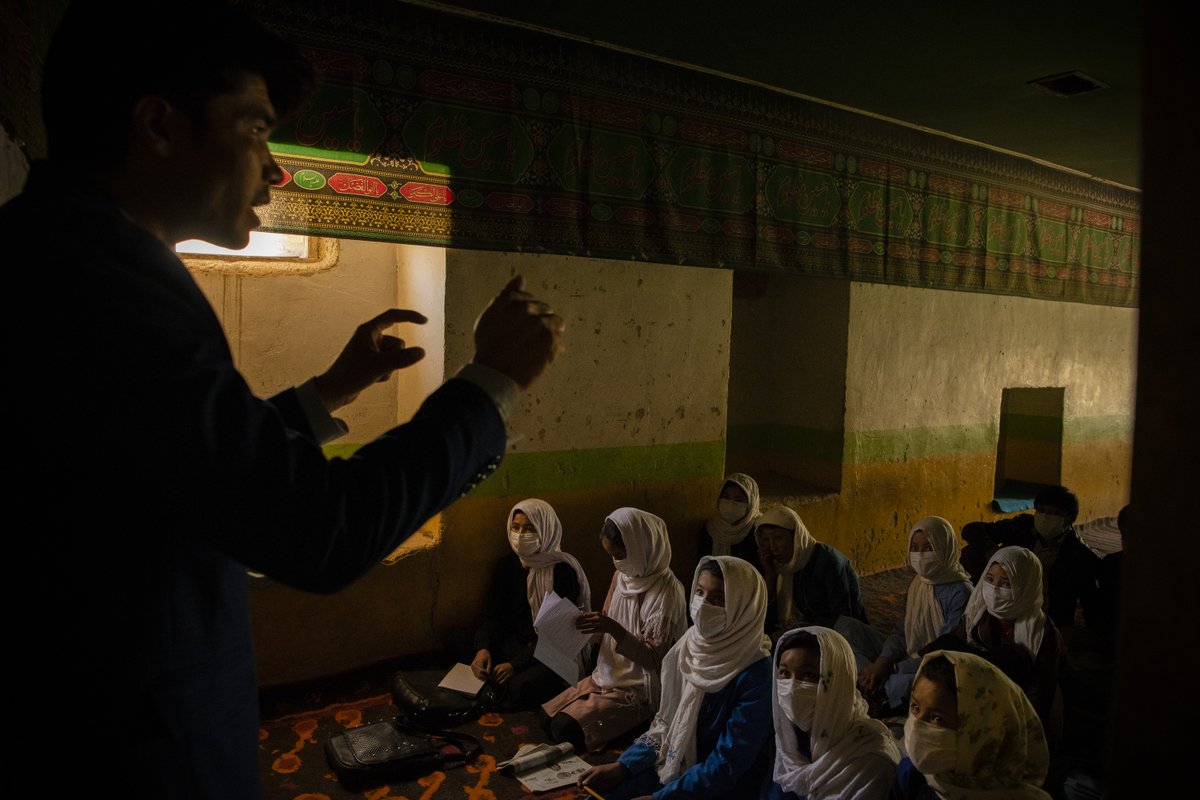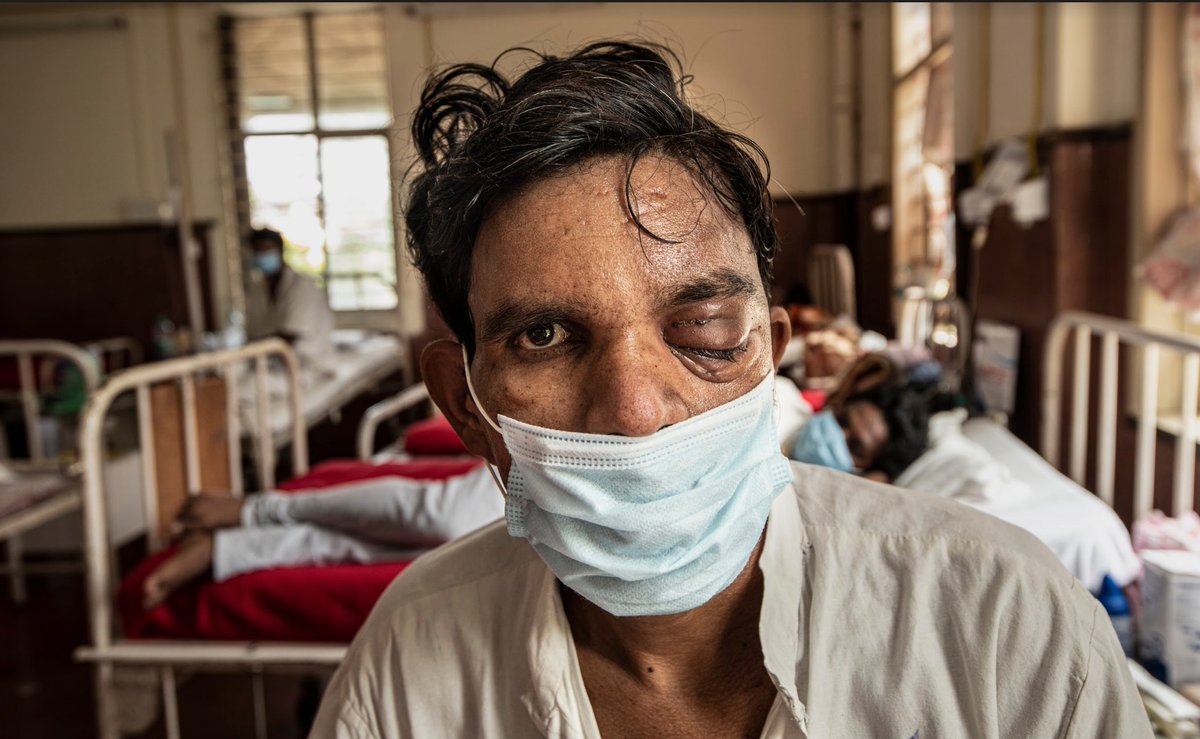
📚The faith in education and the desire for learning in Afghanistan is striking.
But for many, access to schooling is precarious - and sometimes even life-threatening
@benfarmerDT & @EzzatMehrdad report ~ 🧵
telegraph.co.uk/global-health/…
But for many, access to schooling is precarious - and sometimes even life-threatening
@benfarmerDT & @EzzatMehrdad report ~ 🧵
telegraph.co.uk/global-health/…
Like any father, Rajab Ali Rezaee wanted to treat his teenage daughters and tried his best within the limits of his modest income.
The greengrocer, for example, used to regularly give 13-year-old Zakia money for new clothes. Yet his daughter had other plans for the money
The greengrocer, for example, used to regularly give 13-year-old Zakia money for new clothes. Yet his daughter had other plans for the money

Rather than spend it on the latest fashions, she saved the hard-earned cash and instead put it towards added classes outside school.
Likewise, her 18-year-old sister, Saleha, would take extra crammer classes to ensure she did well in the national university entrance exams
Likewise, her 18-year-old sister, Saleha, would take extra crammer classes to ensure she did well in the national university entrance exams

But on the afternoon of May 8, the sisters were among throngs of girls leaving Sayed Al-Shuhada school in a western suburb of the Afghan capital, Kabul.
As the crowds began to make their way home a car bomb detonated, followed minutes later by two other bombs
As the crowds began to make their way home a car bomb detonated, followed minutes later by two other bombs

Saleha and Zakia were among scores killed in the coordinated blasts which have left more than 85 dead, with the great majority of them teenage girls.
No one has yet claimed responsibility for the bombing
No one has yet claimed responsibility for the bombing

Mr Rezaee has spent the past month dazed by grief. “My daughters are prime examples of how my community is striving for education.
“For my daughters, their weapons were notebooks and pens. Their school was their frontline, their outpost”
“For my daughters, their weapons were notebooks and pens. Their school was their frontline, their outpost”

Unlike in the UK – where education is often taken for granted – school in Afghanistan is seen not as something to be endured, but as something to be strived for that can transform a child's chances 

Education has often been touted as one of the main gains of the past 20 years, with thousands of schools built and the proportion of children going to school rising sharply after years of civil war and Taliban repression 

Yet, with the foreign forces leaving within weeks and the conflict between Ashraf Ghani's government and the Taliban-led insurgency intensifying, it is uncertain how education will fare in the coming years 

.@unicef says that despite progress, some 3.7m children were estimated to be out-of-school in Afghanistan in 2018 – and, law and order declines in the country, that burden has fallen disproportionately on girls
@benfarmerDT & @EzzatMehrdad report
telegraph.co.uk/global-health/…
@benfarmerDT & @EzzatMehrdad report
telegraph.co.uk/global-health/…
• • •
Missing some Tweet in this thread? You can try to
force a refresh









